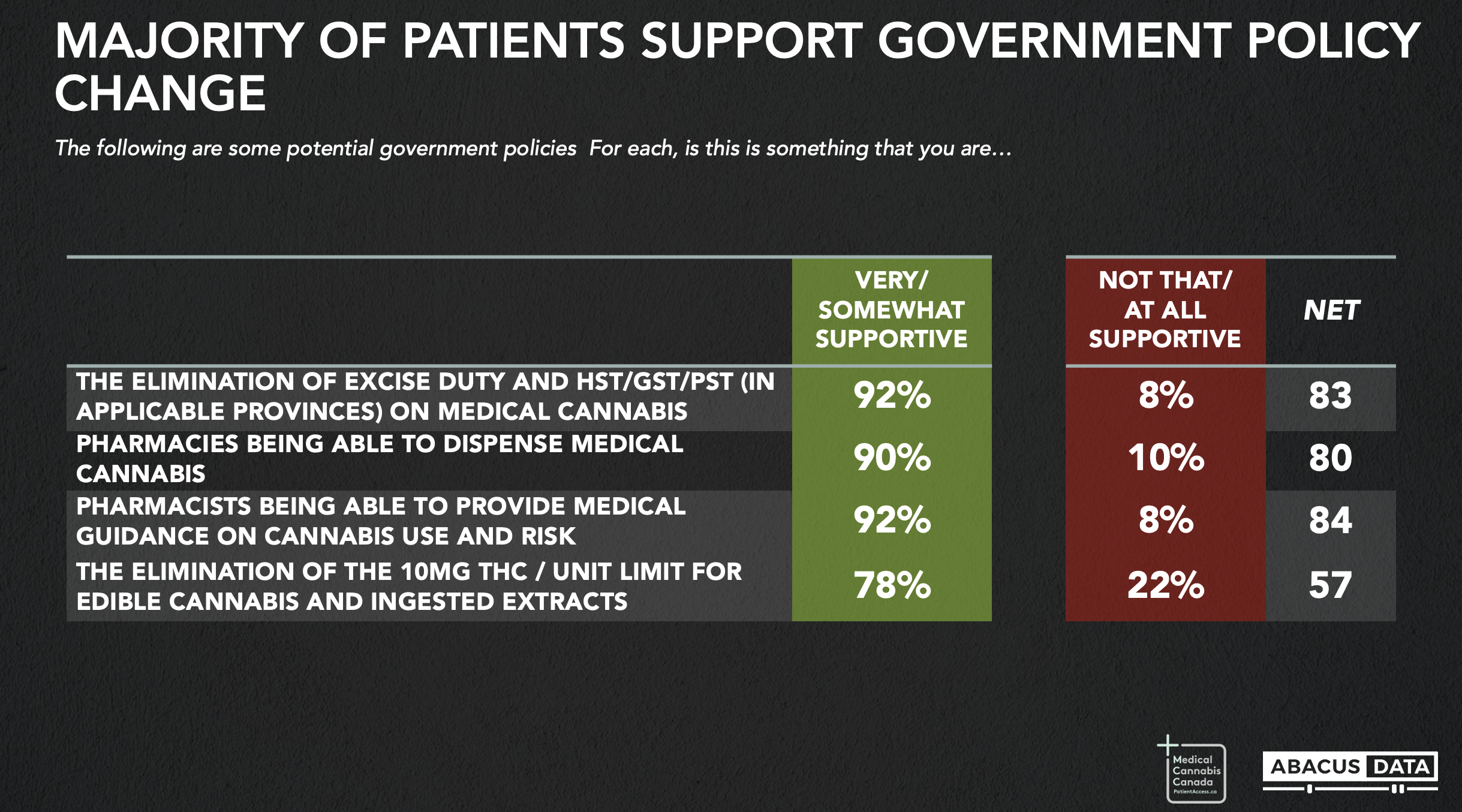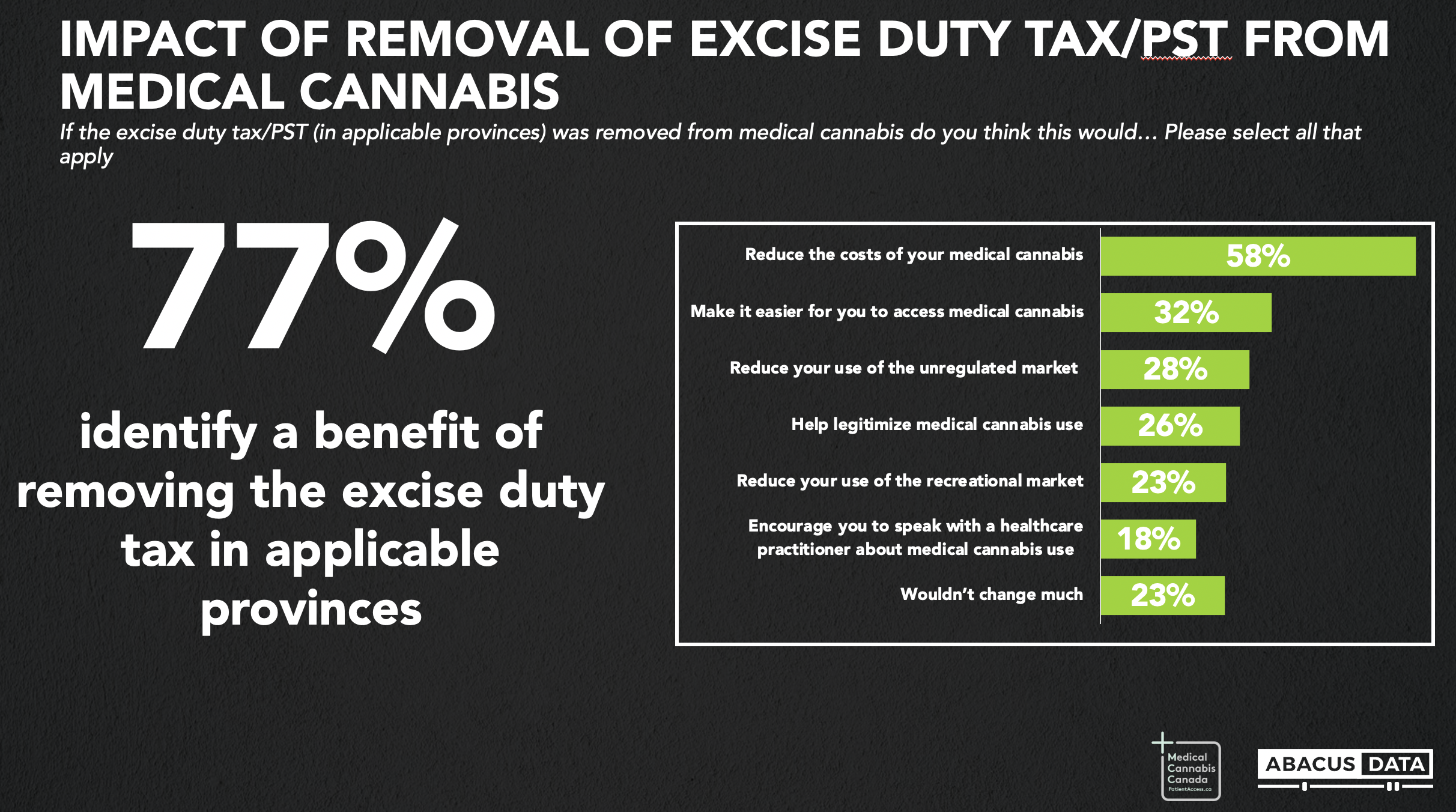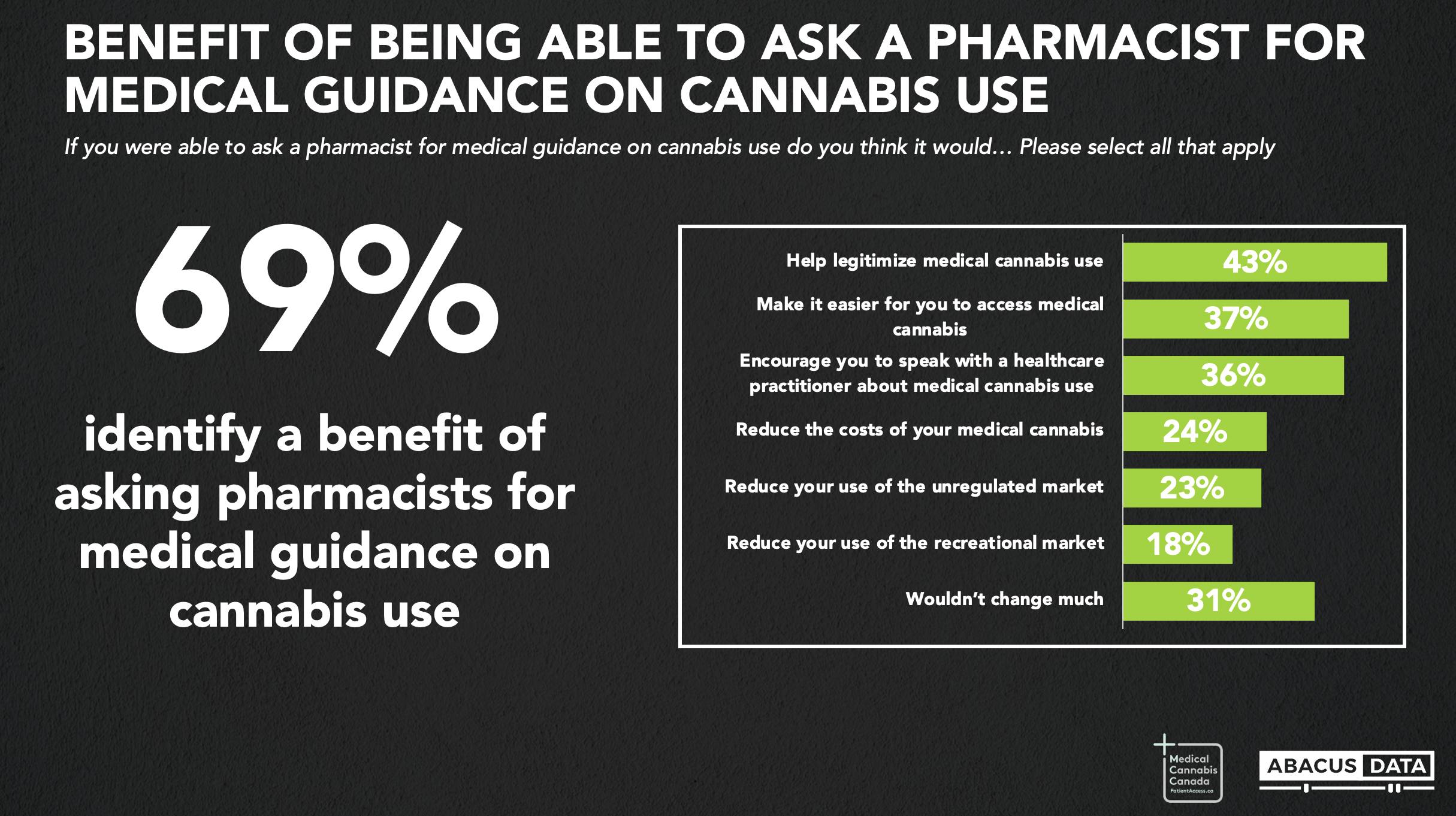Medical Cannabis Patient Survey Results
It’s no secret that even with the legalization of medical cannabis in Canada in 2001, access to the treatment has been challenging for patients. In 2021, parts of The Cannabis Act which governs this system will be coming up for review. With this in mind, MCC felt it was important to understand what the current challenges are for patients in the medical system in Canada and how to address them, which is why we developed the Medical Cannabis Patient Survey (MCPS) with the input from a diverse group of patient volunteers!
The MCPS found systemic barriers in the legal medical cannabis system that are pushing the majority of patients into recreational and unregulated markets without the support of a healthcare professional. Results illuminate the challenges all patients face, the comparative experiences of those with and without a medical document and which policy changes patients support.
Scroll below to read the key findings or download the highlight report in English or French!
Detailed Results
Expand any of the sections below to see key breakdowns of the survey results or click below to download the highlight report (make sure you have turned off any pop-up blockers prior to downloading).
Acknowledgements
Thank you to the team of patients who helped develop the survey questions and provided input along the way.
Members of the patient review team include: Melissa Slade, Anita Glibota, Alexander Barron, Lisa Kirkman, Farrell A. Miller, Kween, Rachel Colic, Shane Sparkes, Andrew Tait, Dan Goulet, Sarah Colero
Medical Cannabis Canada would also like to thank Spectrum Therapeutics, the medical division of Canopy Growth Corporation for helping make this important project possible through an unrestricted grant to MCC. With this arm’s length support, MCC had full control over the survey protocol and results.
Methodology
The survey was conducted among two separate populations.
The first was a sample of 1,000 medical cannabis patients from July 28 to August 1, 2020. A random sample of panellists were invited to complete the survey from a set of partner panels based on the Lucid exchange platform. These partners are typically double opt-in survey panels, blended to manage out potential skews in the data from a single source.
The margin of error for a comparable probability-based random sample of the same size is +/- 3.08%, 19 times out of 20.
Results from this sample are what is highlighted in the following report.
The second was a sample of MCC members. 1,785 members completed the survey from July 30th to August 14th. Members were invited by email to complete the survey. Member data is not included in the analysis within this report.
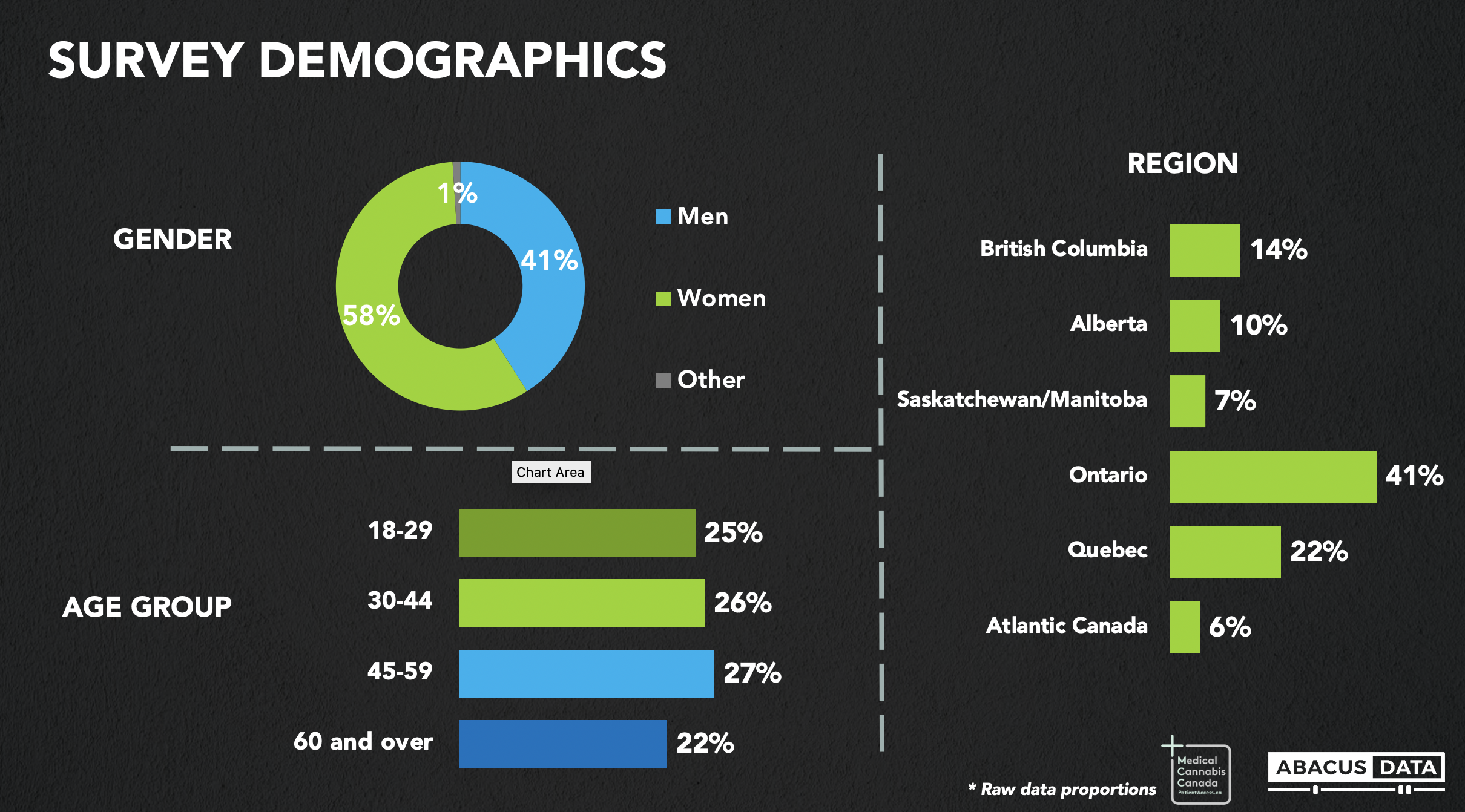
State of Play
-
- Just over half of medical cannabis patients are relatively new to the treatment, having used cannabis for medical purposes for three years or less.
- The most common symptoms patients manage with their medical cannabis are sleeping problems, general stress, and chronic physical pain. The most common conditions are anxiety disorder, depression, and insomnia.
- Just over a third have a medical document. These are most common among patients in Alberta.
- Cannabis clinics are the most frequented source for a medical document (31%), followed by in-person or online from a physician’s office (26%).
- The majority of those who have had a medical document (74%) go to a healthcare practitioner or a pharmacist for guidance on cannabis use for medical purposes, compared to only 24% of those who have never had a medical document. The majority of patients who have never had a medical document go to friends and family, websites, and retail salespeople or “budtenders” at recreational cannabis stores for guidance on their medical cannabis use.
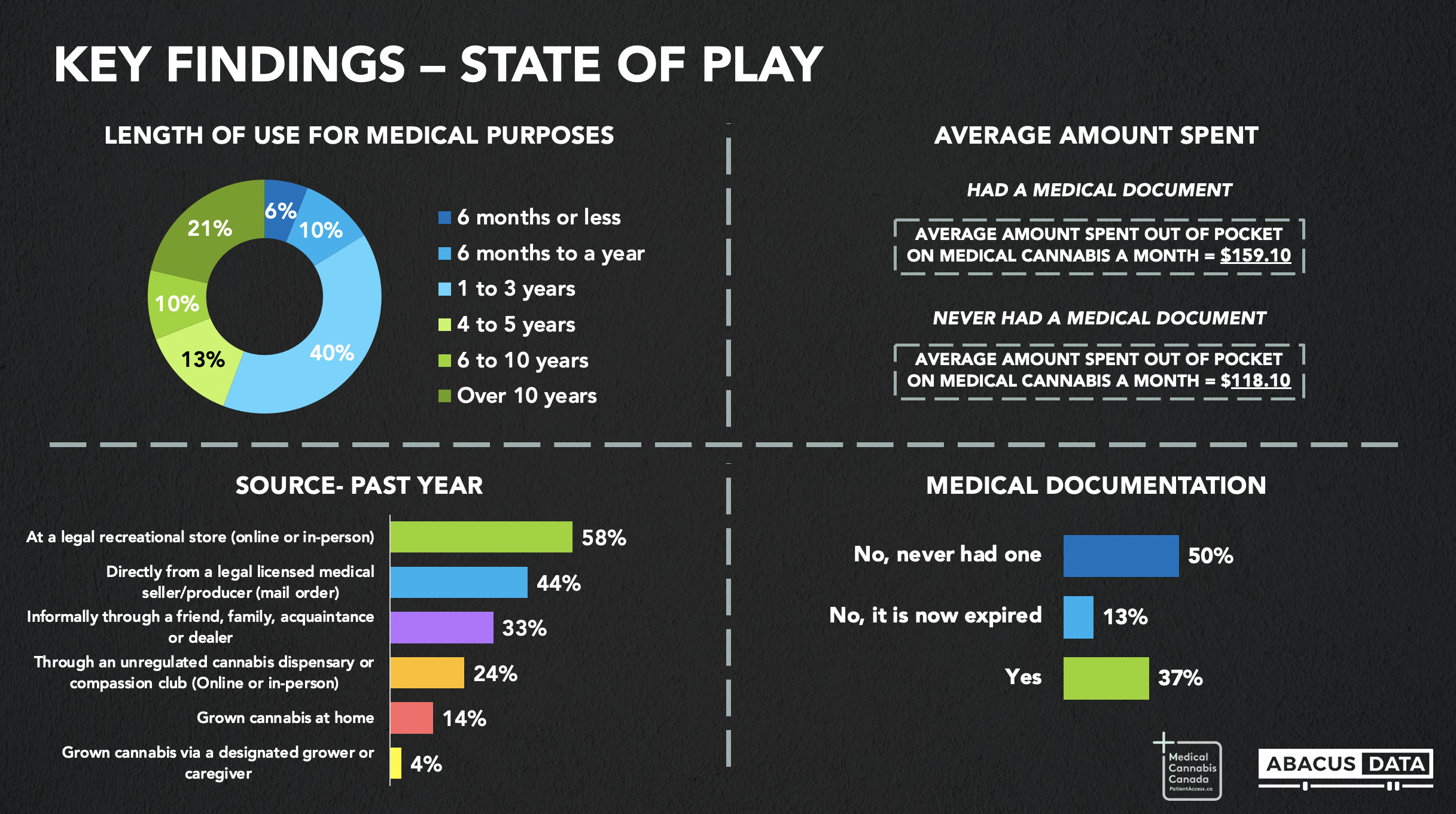
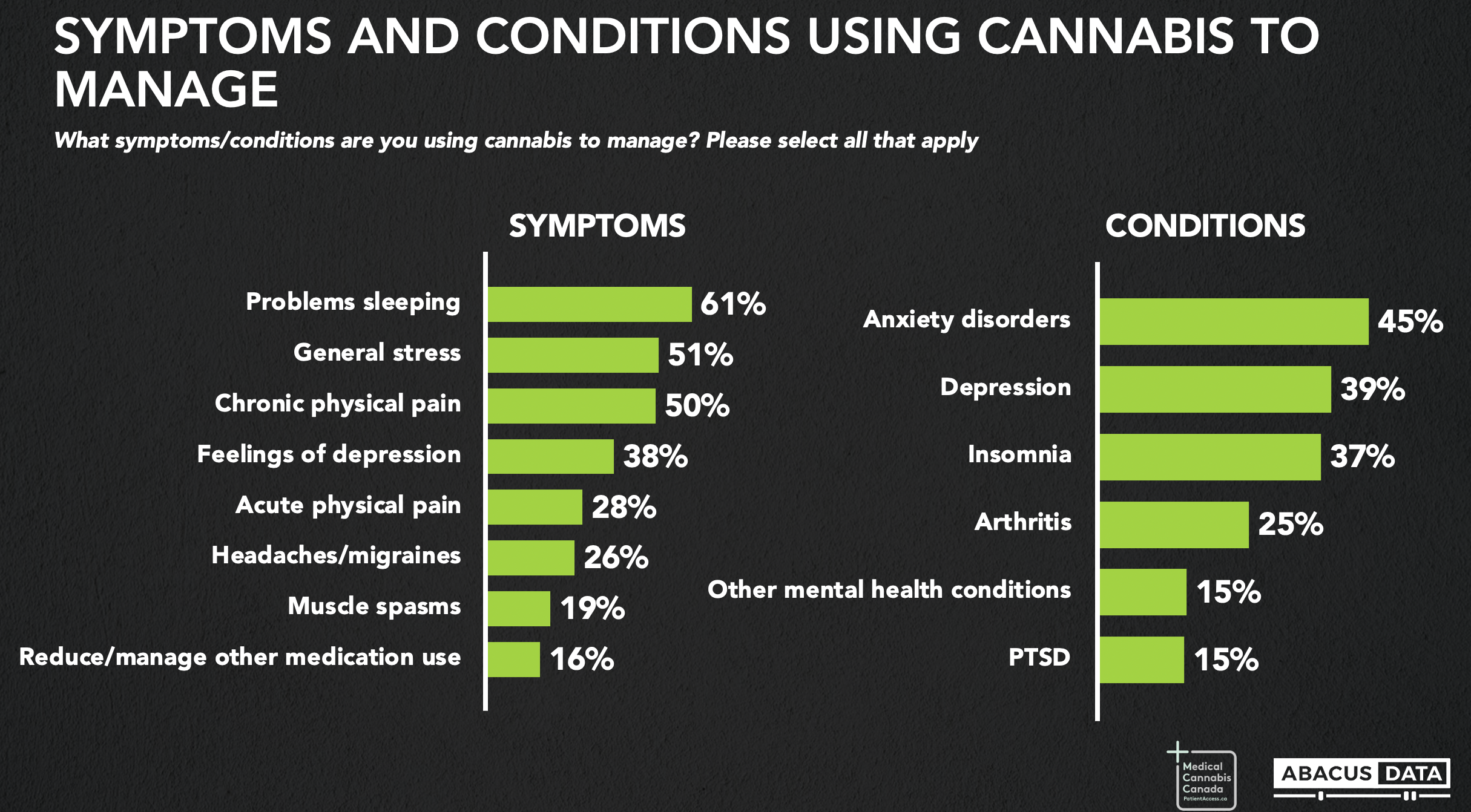
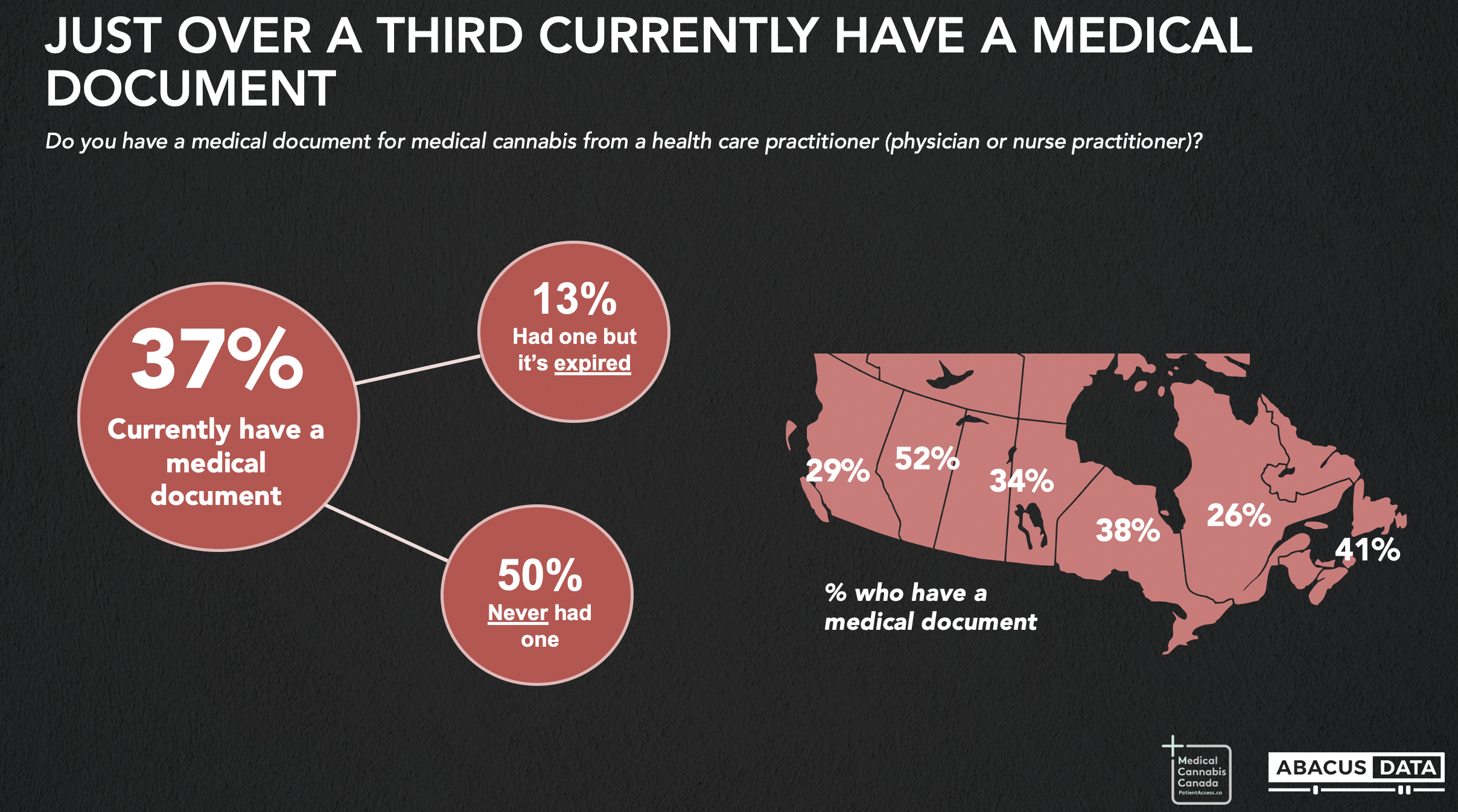
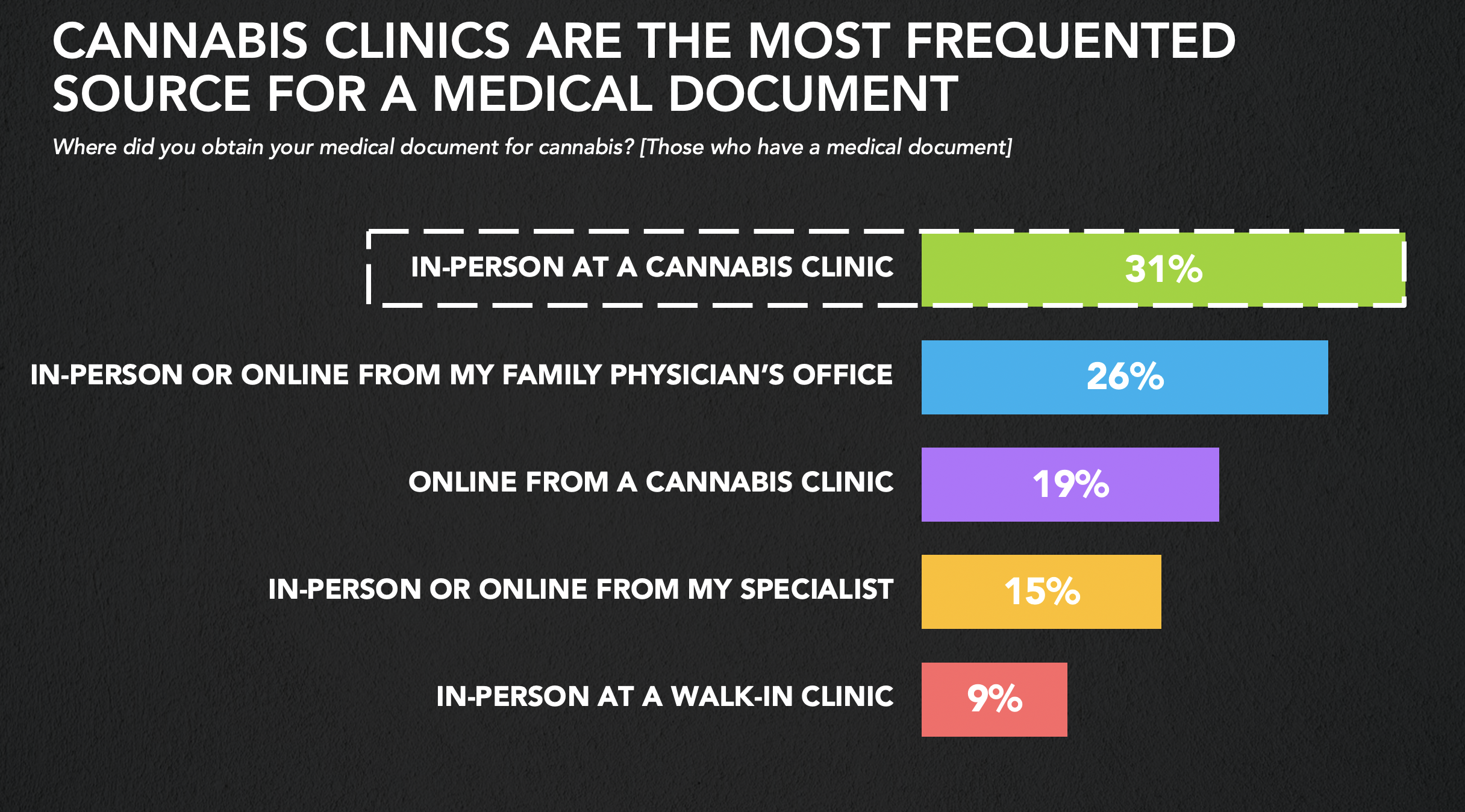
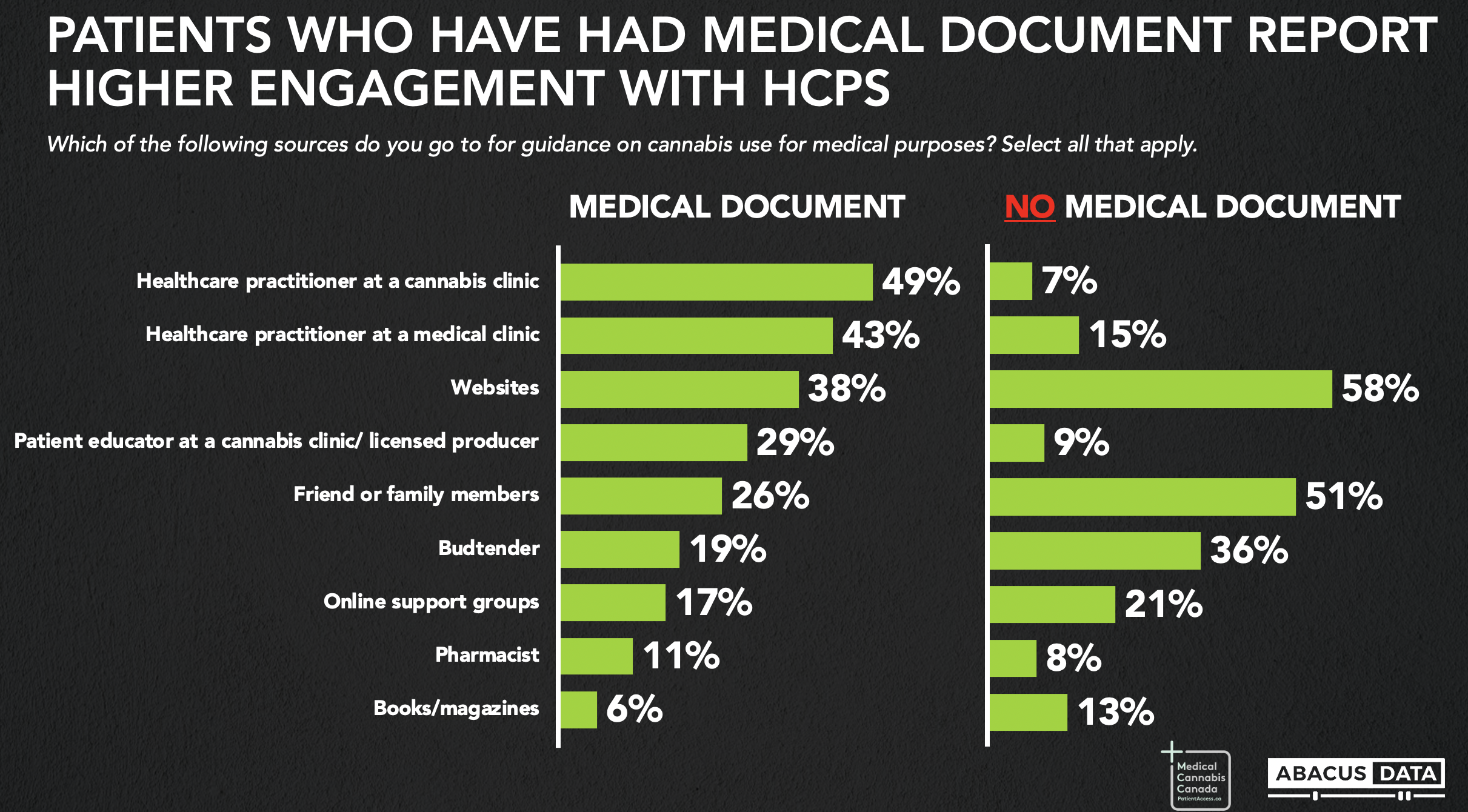
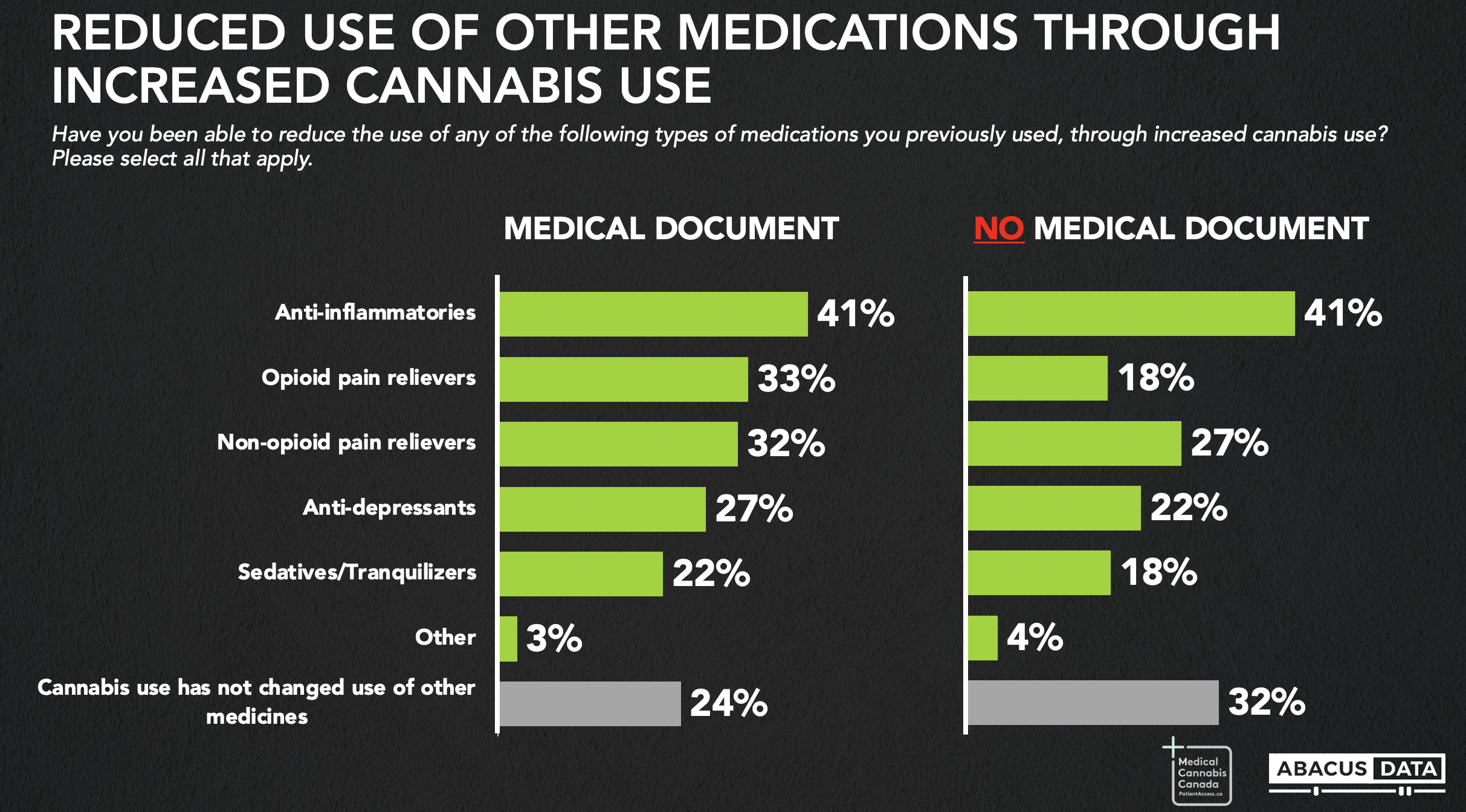
Barriers in the medical system
-
- Cost is seen to be one of the biggest barriers to accessing cannabis for medical purposes and was reported as the main reason patients switch sources.
- Despite over 40% using compassionate pricing from licensed medical sellers, those who have had a medical document reported spending around $160 a month out of pocket on their treatment, 34% higher than those who have never had a medical document.
- Legal recreational stores and direct access from licensed sellers through the medical system are seen to be the least affordable.
- 83% say they feel stigma in the medical system regarding cannabis use, and 57% say they find it hard to find a healthcare provider to speak to about their medical cannabis use.
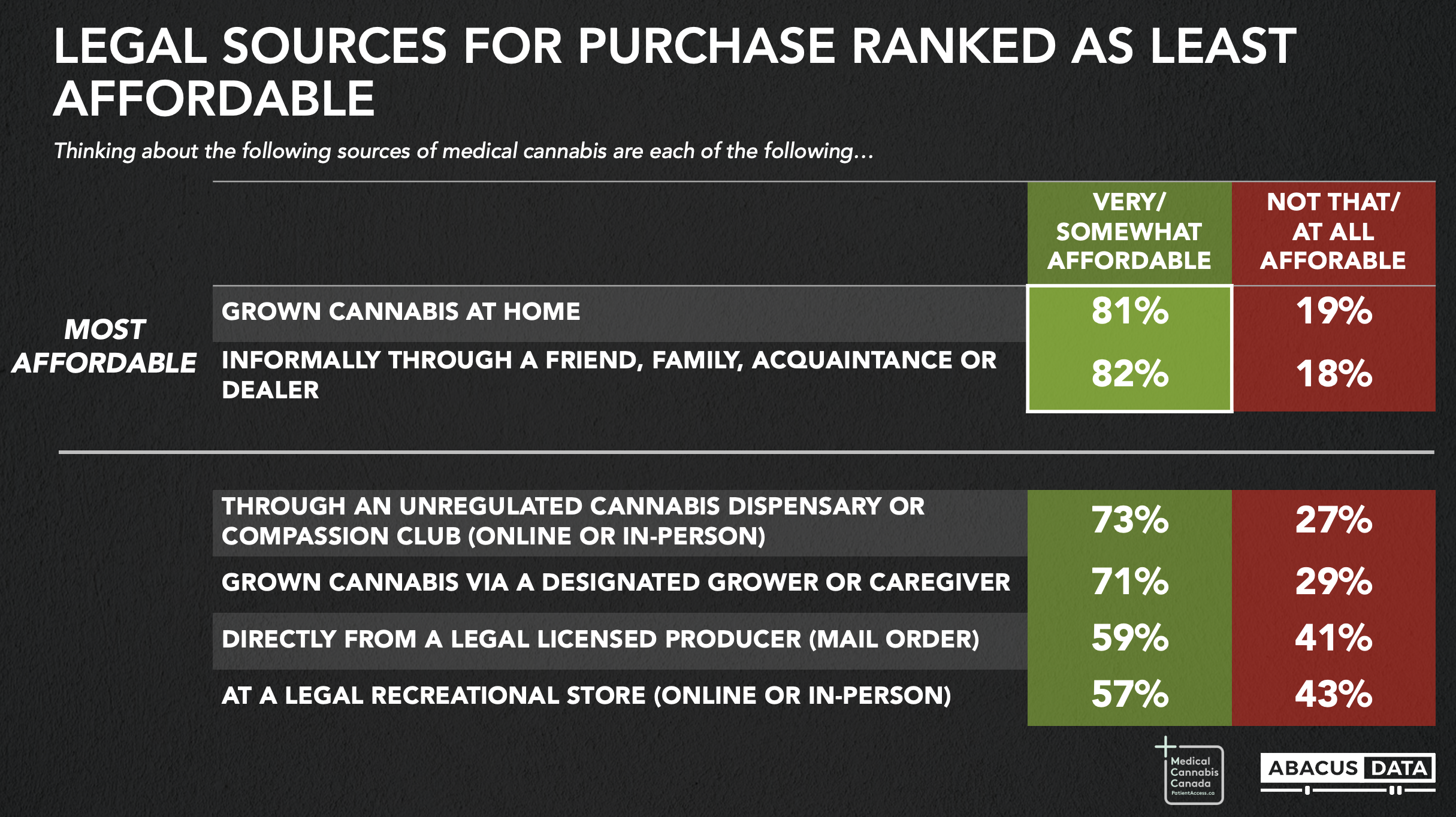
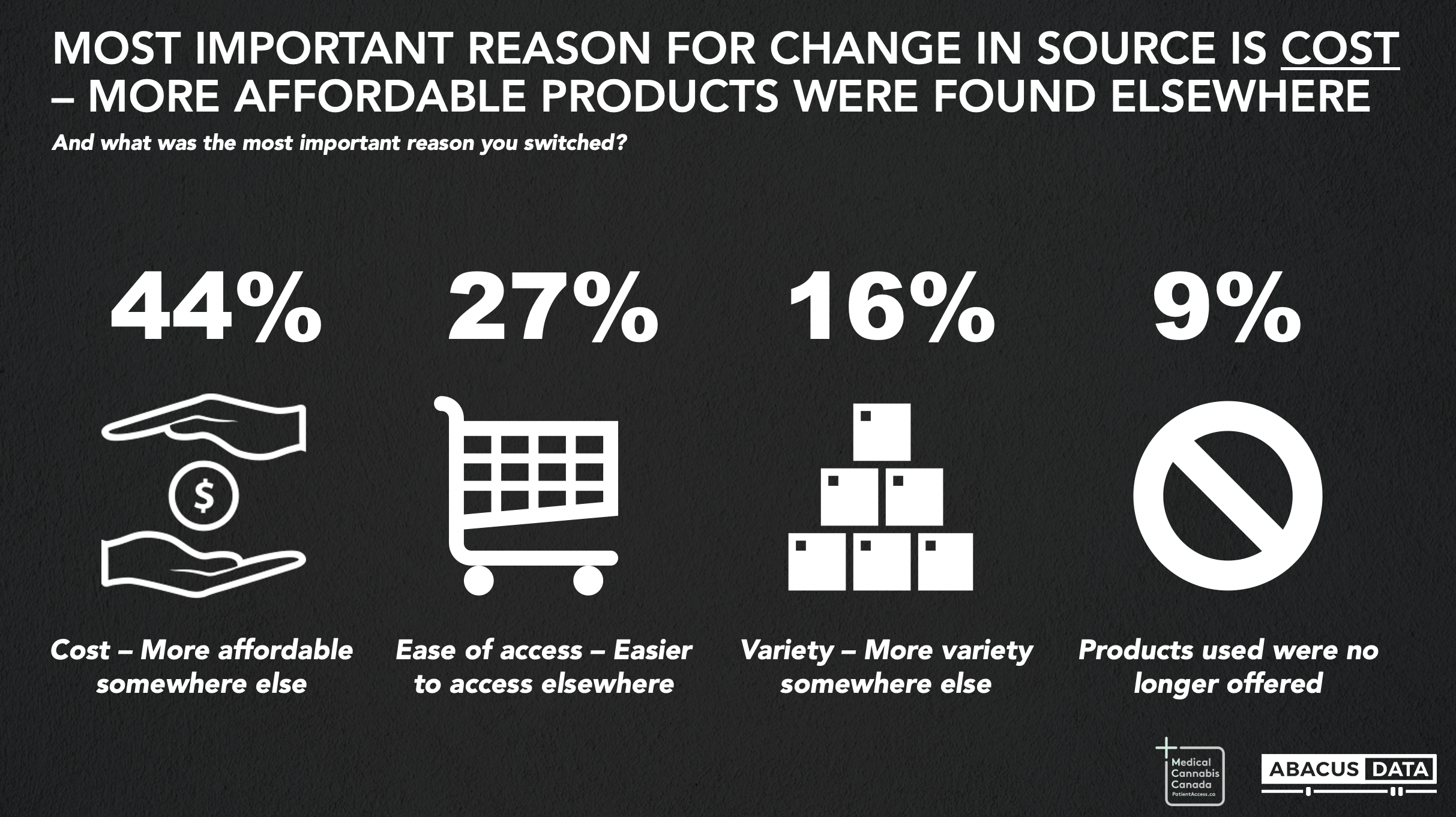
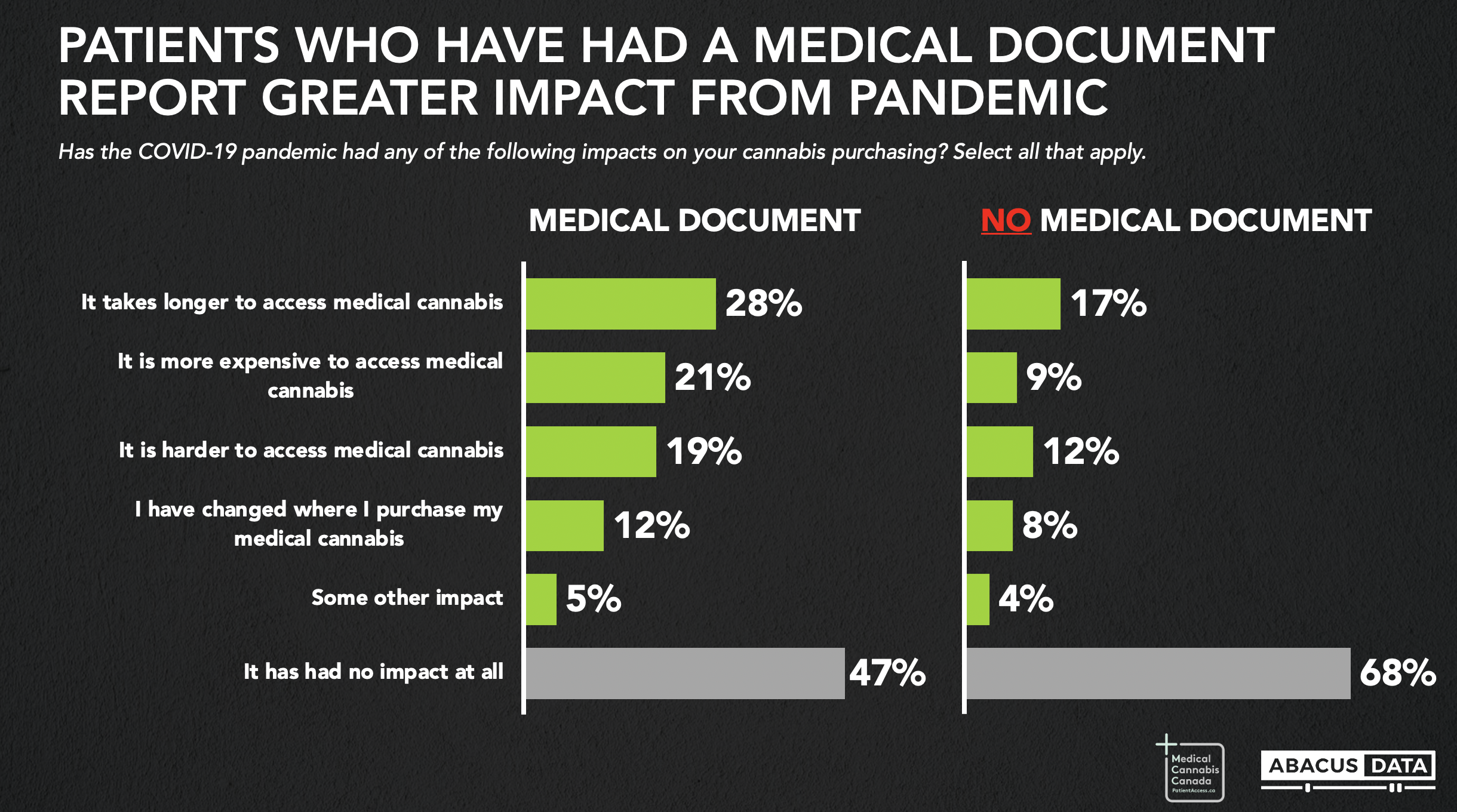
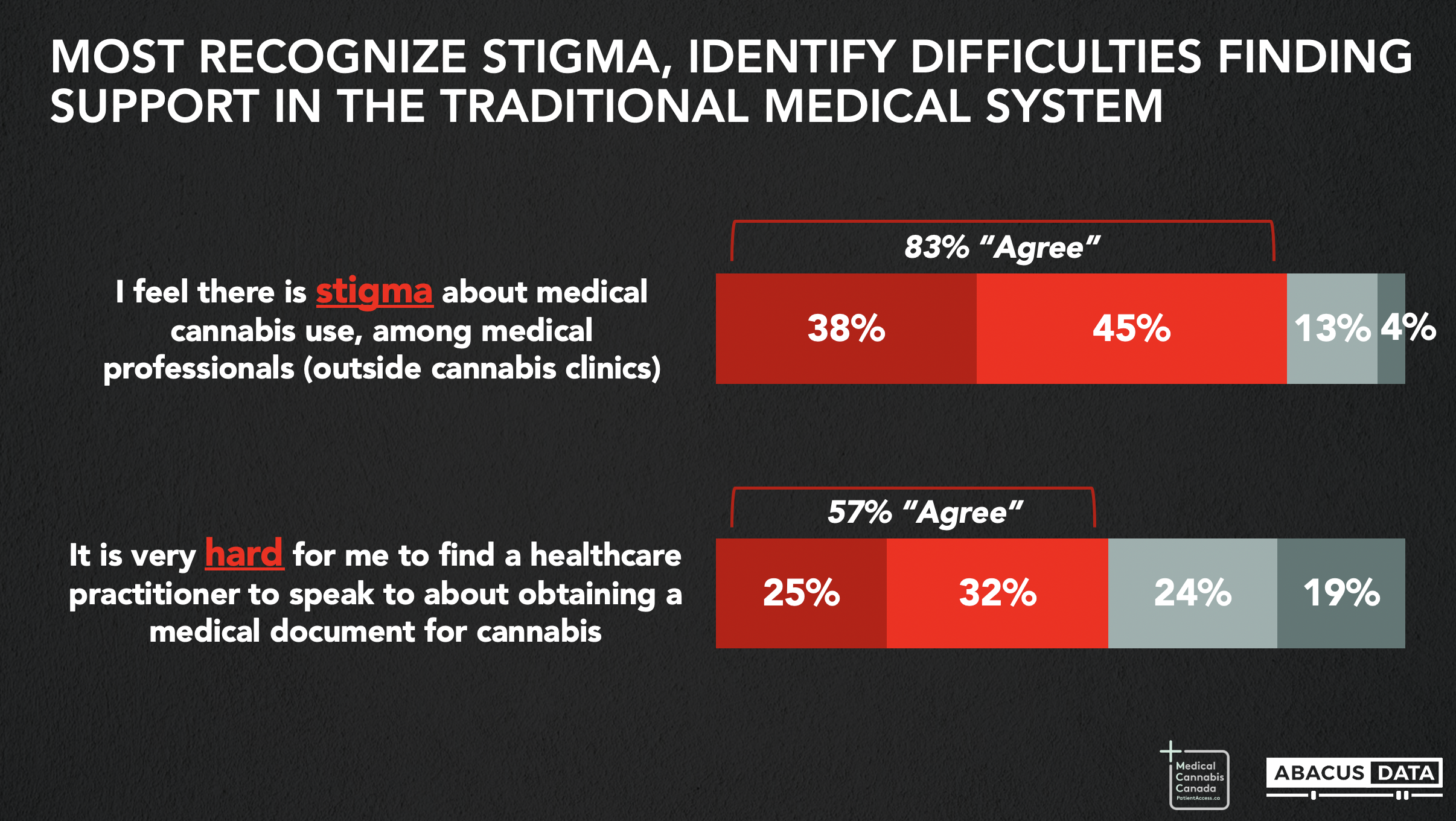
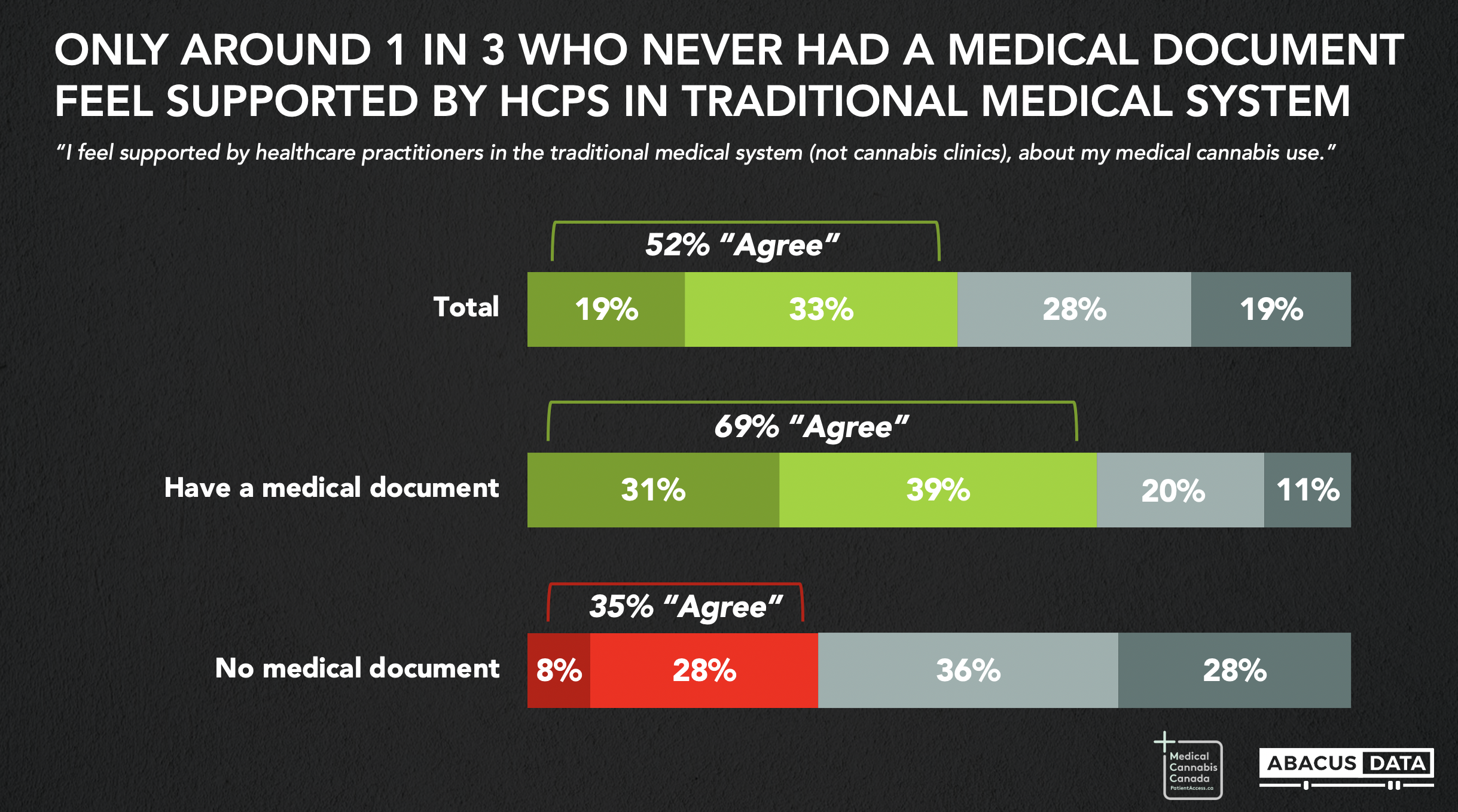
Impact of barriers
-
- 60% say they feel like they have to access medical cannabis from the unregulated market because the regulated system poses too many challenges (cost, authorization, navigating the structure).
- 72% of medical cannabis patients say medical cannabis use has decreased reliance on traditional medication. 1 in 4 reported decreased reliance on opioid pain relievers, but 36% of these patients report barriers to accessing cannabis led them to return to these medications.
- Among those who don’t have a medical document, two-thirds also say it’s because the medical cannabis system seems unclear, and similar numbers say if they chose to access through the medical system it would increase the costs of their medical cannabis.
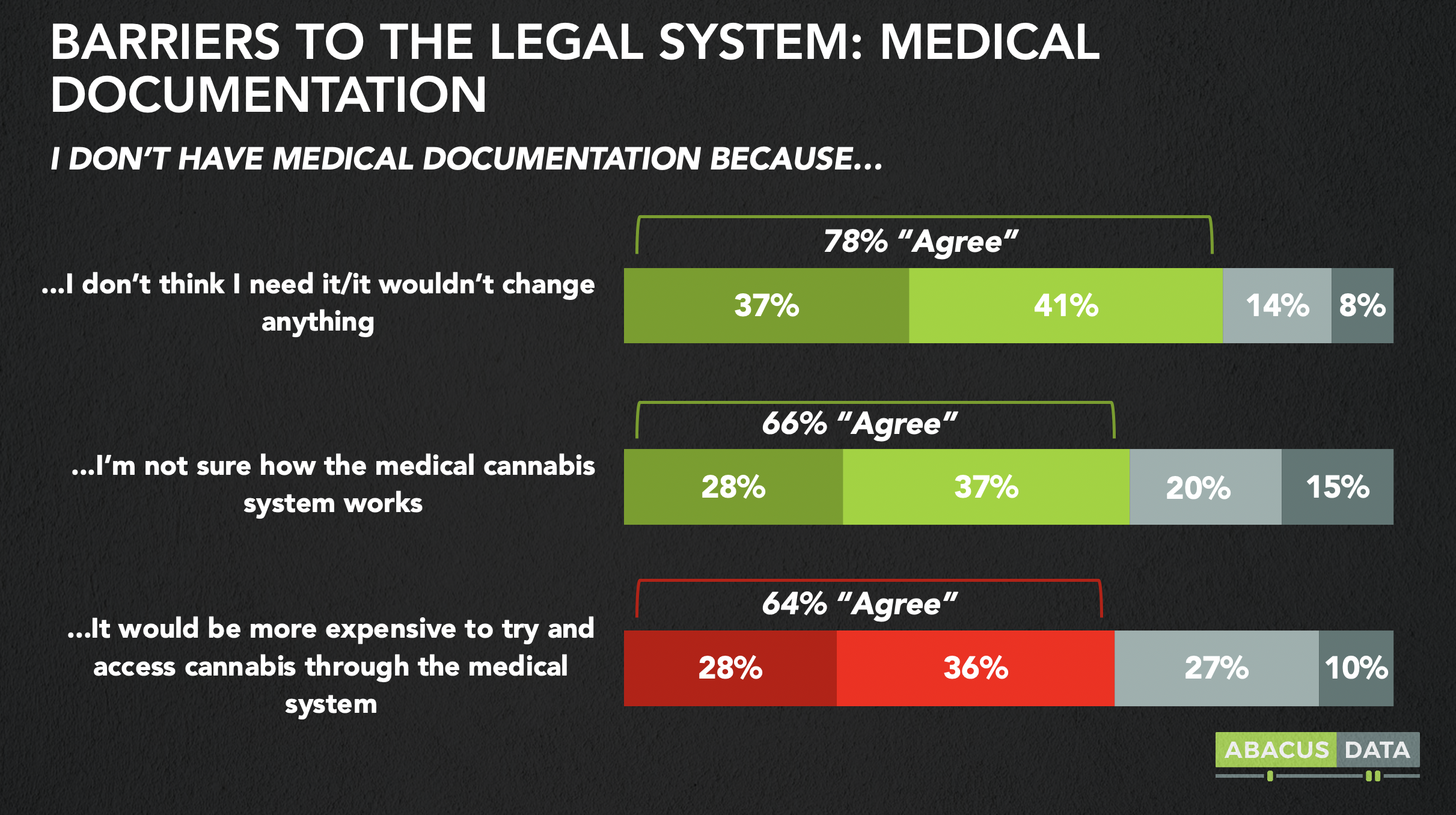
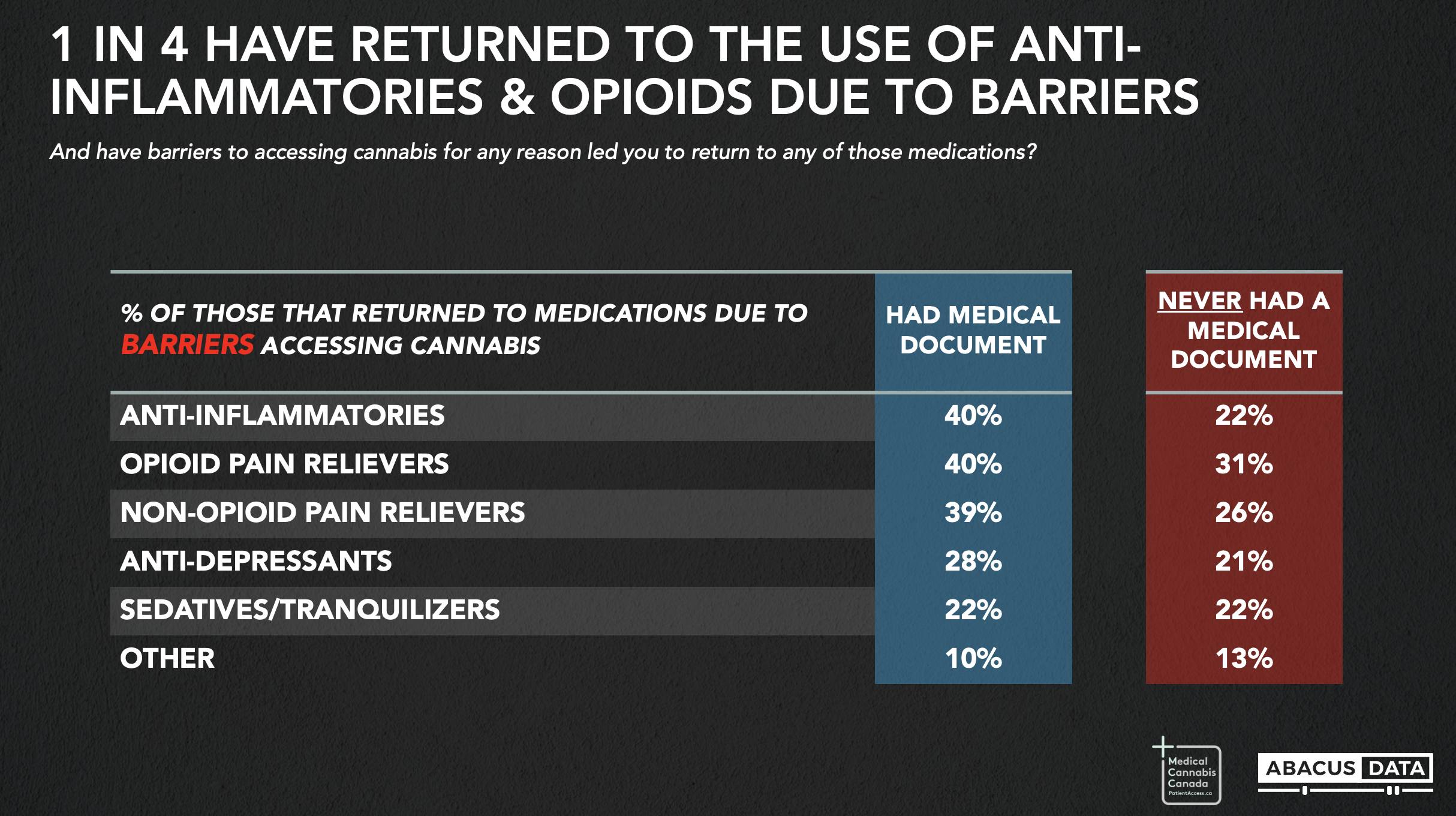
Support for policy changes
-
- There is wide-spread support for all of the policy issues tested. Support is strongest for the elimination of the excise duty/PST (in applicable provinces), however, each suggests policy received support from more than 75% of medical cannabis patients.
